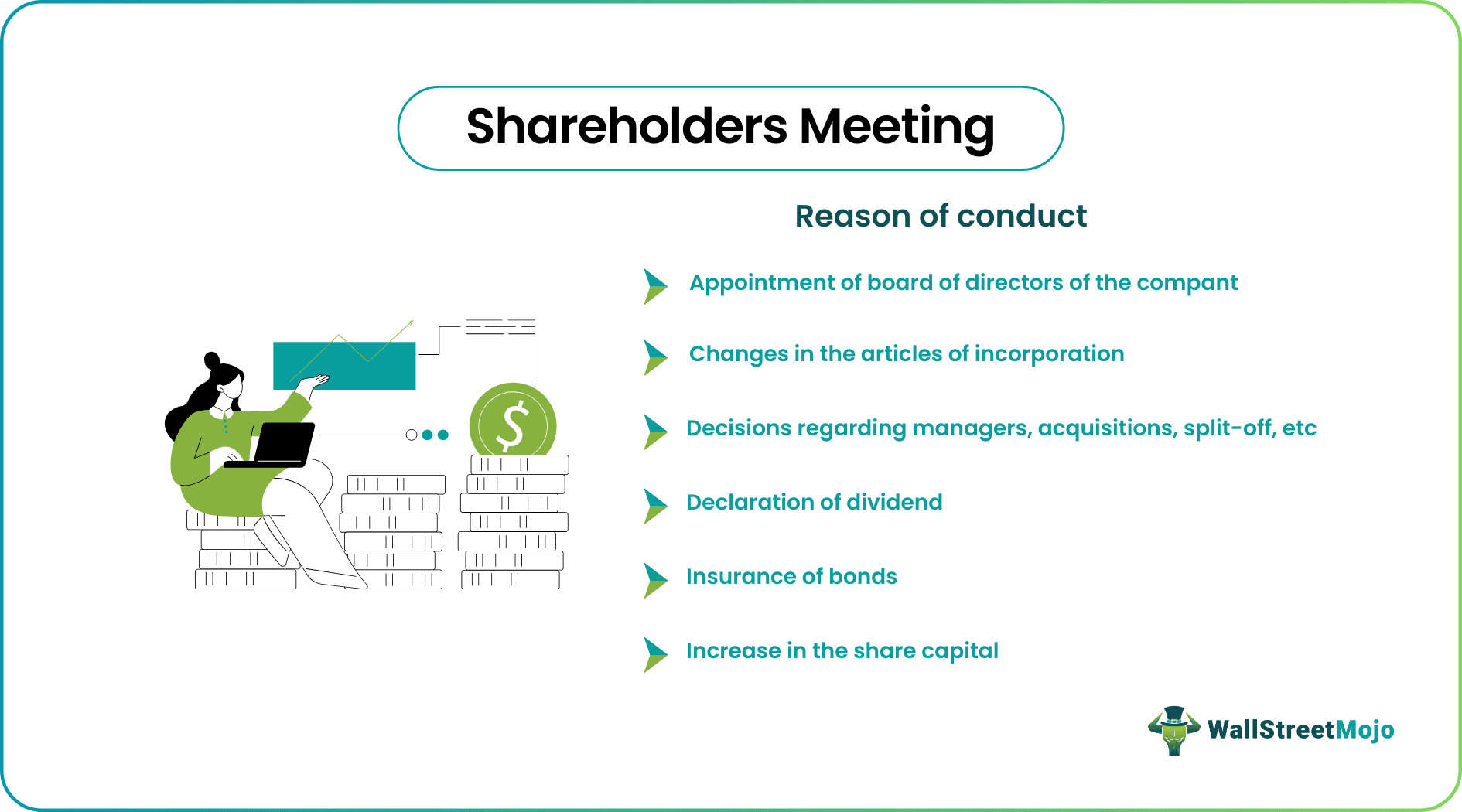Table Of Contents
Explanation
- The word 'meeting engagement' implies an act of coming face to face or coming together to have a discussion. The word 'shareholders' means the actual persons who have taken a stake in the corporation, interested in the company's profits or loss of the business.
- Please note that the shareholders do not manage the company. To manage the company's affairs, shareholders appoint a few experts in the management field. All such experts are collectively termed “Board of Directors” (BOD). BOD is also called the company's management by taking decisions and seeking the approval of the company's shareholders.
- These are popularly known as general meetings. The question here arises why such a meeting is required? Can't the company take the decisions on its own? For this, let's recollect that a company is not a human being like you and me, but it is an artificial person constituted by the members. Hence it makes decisions through passing a resolution at the meeting by its member.
- The purpose of the meeting is that the shareholders can know about the company's affairs & thereby, they can decide upon the suggestions made by the management in the proposed resolution. This means that the shareholders get equal importance in the decision-making process.
General Provision Applicable for All Meetings
- The specific quorum required in case of any meeting: In the case of private limited companies, two members are required to form a quorum. In the case of other companies, at least three members are required to constitute a quorum.
- In case of meetings other than annual general meetings, a notice period of a minimum of 14 days (in case of a company other than an unlimited company) or a minimum of 7 days (in case of an unlimited company) is required to be given before calling for the said meeting. However, the notice period can be served by shorter notice than the specified period if the consent of at least 95% in value of the shares (in case of a company having a share capital) or at least 95% of total voting rights of all the members in that meeting (in case of a company not having a share capital), is obtained.
Importance
The management makes all the decisions of the company. However, management must take shareholders' approval before implementing the organization's key findings. Hence, for taking the said approvals, the board must call the shareholder's meeting. Now, which type of meeting is to be called depends upon the matter to be discussed.
Generally, this meeting is called for the following matters:
- The consideration of financial statements and the reports of the Board of Directors and auditors report thereon;
- Appointment of board of directors of the company.
- Changes in the articles of incorporation of the company.
- Appointment of the directors in places of those retiring;
- Appointment and fixing of the remuneration of Auditors of the company;
- Decisions regarding mergers, acquisitions, split-off, spin-off, etc.
- Declaration of dividend.
- Shareholder Resolution for winding of the company
- Appointment of liquidators of the company
- Issuance of bonds
- Increase in the share capital of the company
- Any other matter, as may be required by the company's bylaws, has to be decided in the general meetings only.
Conclusion
Each type of meeting has its relevance and importance. Every meeting cannot be an AGM, and every meeting cannot be either EGM. Corporations are required to comply with all the statutory requirements regarding calling and holding any shareholders' meeting. Noncompliance thereof may cost the company to pay penalties to the government.


